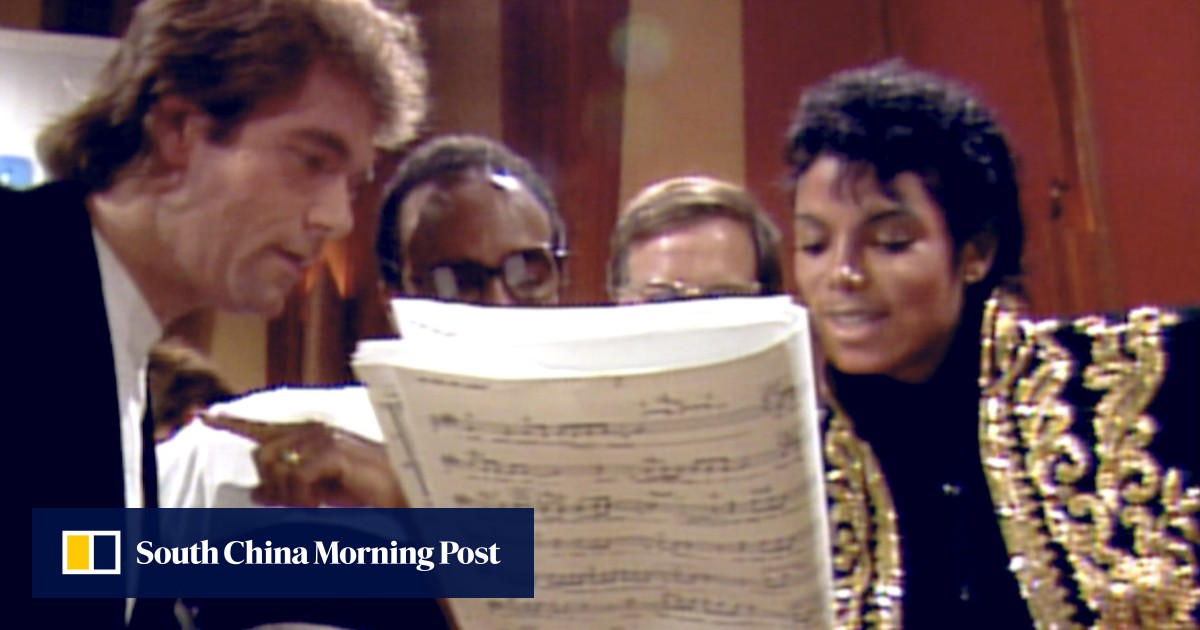“It’s a celebration of the power of creativity and the power of collective humanity,” says the documentary’s producer, Julia Nottingham. “The amazing thing about the song is it’s such an inspiration for so many artists.”
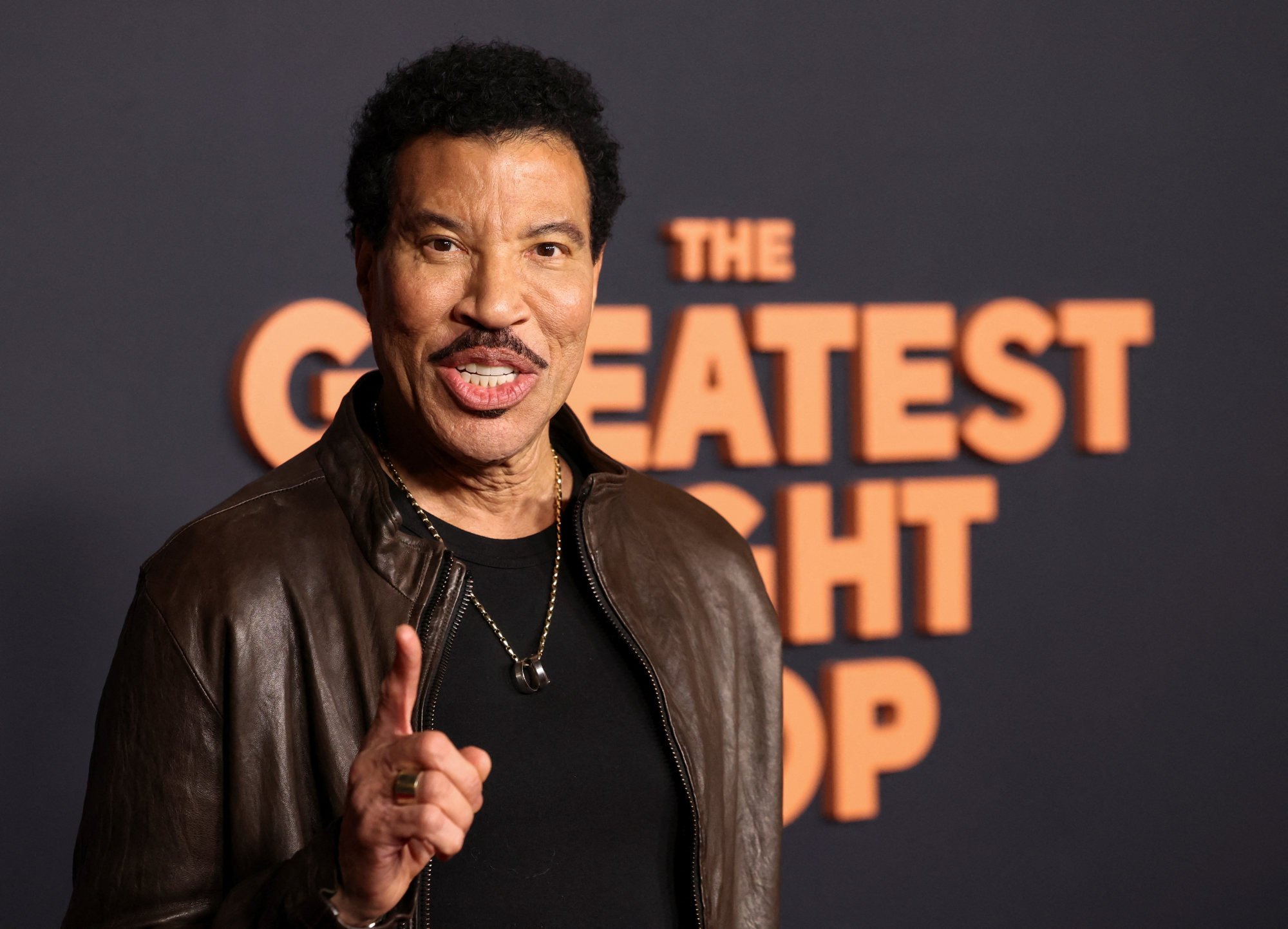
“I knew it was important to recreate those memories by just sort of walking into that room and what that energy created for them,” says director Bao Nguyen, who was only two when the single came out.
The filmmakers married never-before-seen footage taken from four cameras that captured the USA for Africa session with audio from journalist David Breskin, offering insight into the dynamics and drama in the room that the official music video could not.
The Greatest Night in Pop isn’t shy about exploring some of the more unflattering things, like Al Jarreau, who sang the second verse, having a bit too much wine and how Dylan was out of his element, needed Wonder to mimic how the Nobel laureate might approach his solo.
Lauper accidentally prolonged the recording session because her jangling jewellery fouled up the recording, while Prince, who was at a Mexican restaurant on the Sunset Strip, offered to do an isolated guitar solo.
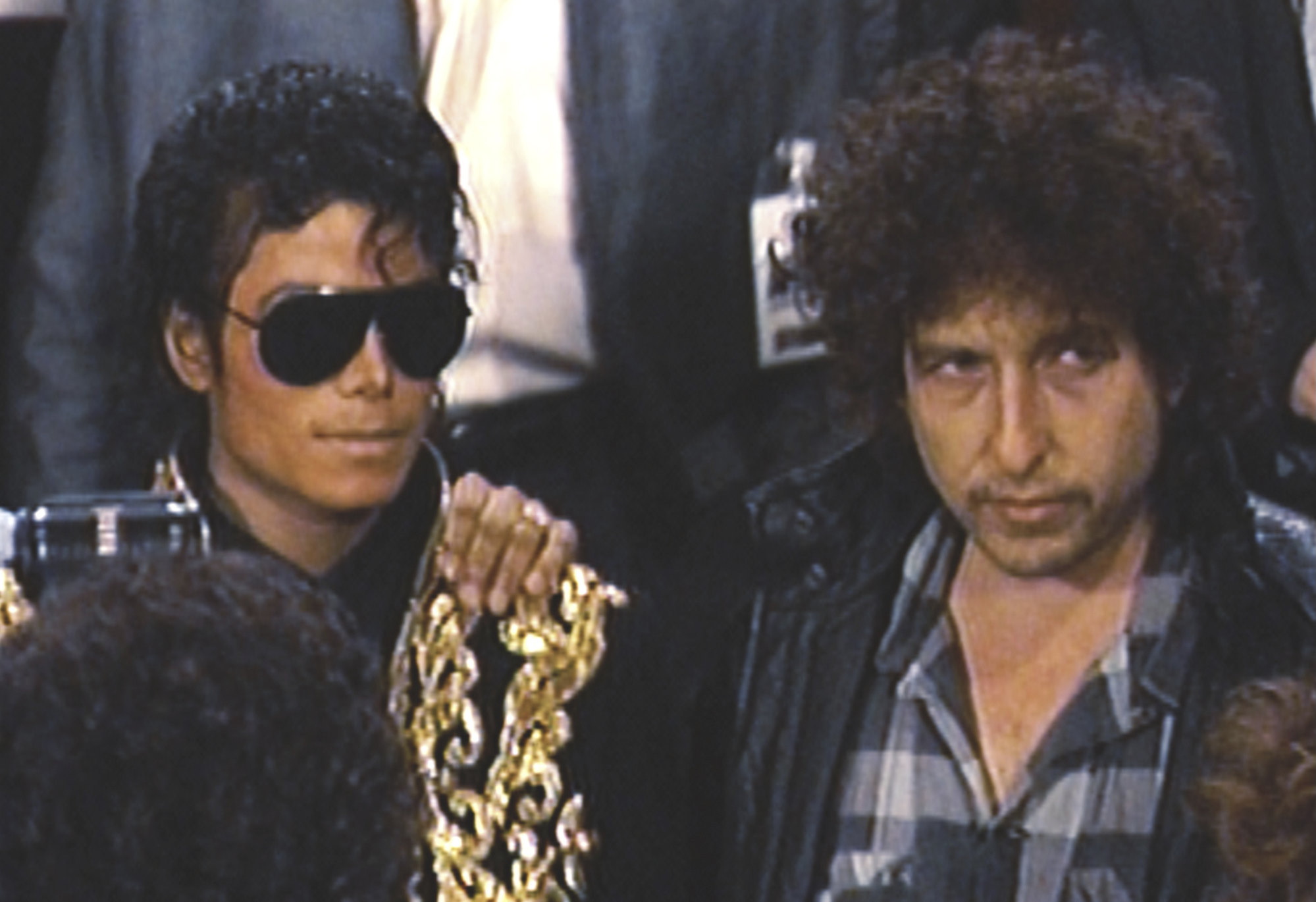
“For me, it was just important that we told a story that was honest,” Nguyen says. “It is an honest story about the night and all the things that could have gone wrong – that did go wrong – but at the end of the day, it became this beautiful family.”
The details in the documentary are glorious: The image of Joel kissing then-wife Christie Brinkley before heading into the studio, and the nugget that Springsteen drove himself to the location in a Pontiac GTO.
It was just one line, but my legs were literally shaking
There’s a moment when the 40-plus superstars that made the song are asked to groove from their knees and stop pounding their feet on the risers, which was throwing off the sound. Quincy Jones, the song’s producer, tried to head off any hubris by taping up a sign: “Check Your Ego at the Door.”
In an interview at the Sundance Film Festival, Richie recalled that having Charles there was helpful, since he was revered. The presence of Dylan also helped neutralise any griping.
“We got the right players to come in. And then once we realised we were trying to save people’s lives, then it’s not about us any more,” Richie said. “But to deliver that in one night? An impossibility.”
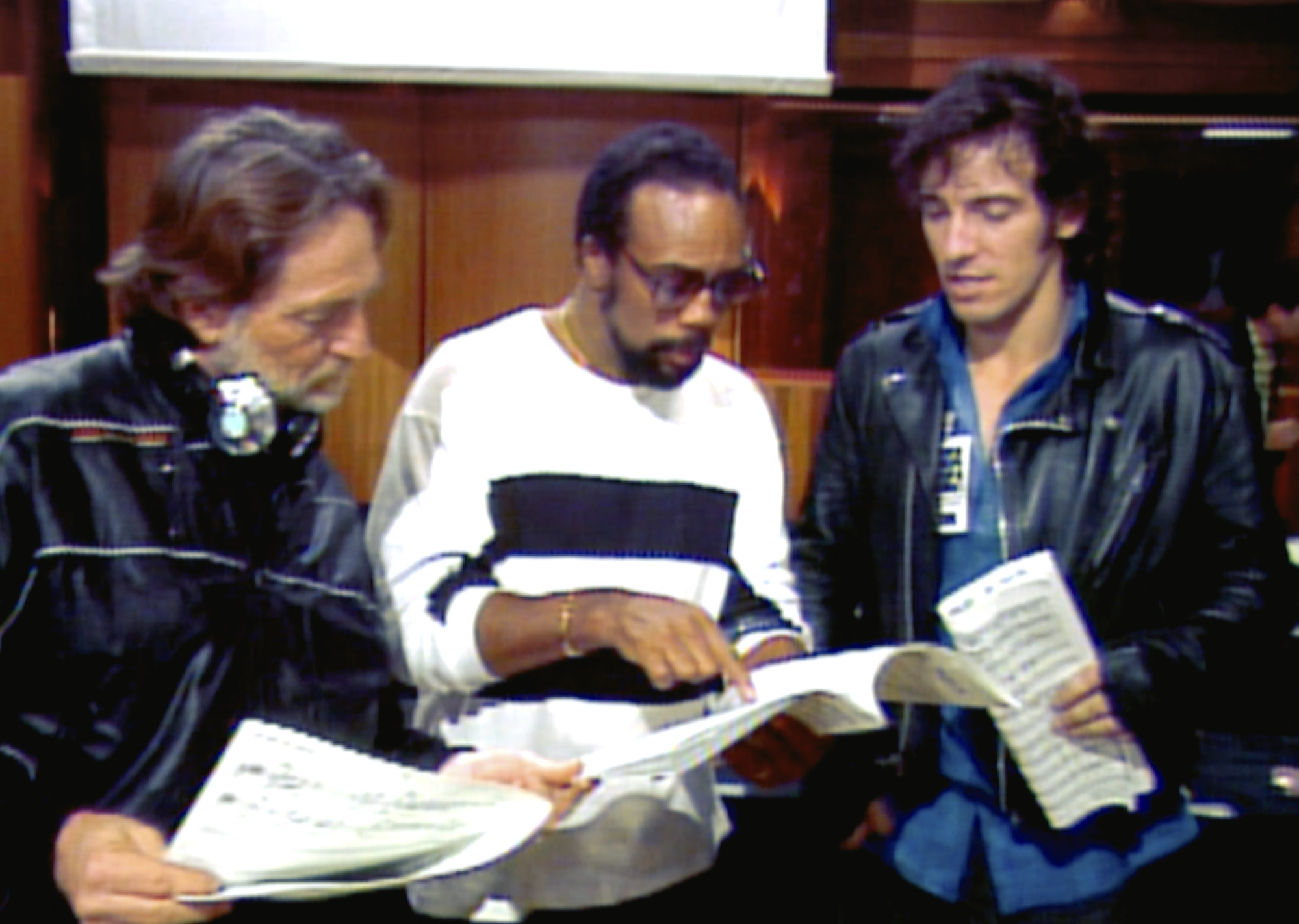
The documentary anchors the effort in the activism of Harry Belafonte, who had raised the alarm about famine in Ethiopia, and having him in the studio singing “We Are the World” was poignant.
The group – exhausted and giddy in the wee hours – also serenaded the legend with a spontaneous version of Belafonte’s “Banana Boat”, with the lyrics “Daylight come and we want to go home”.
It is revealed that Loggins suggested that Huey Lewis replace Prince in the solos, right after Jackson. No pressure, right? “It was just one line, but my legs were literally shaking,” Lewis recalls in the movie.
From Anita Mui to Kylie Minogue, Hong Kong’s disco days recalled
From Anita Mui to Kylie Minogue, Hong Kong’s disco days recalled
There was a key moment when Wonder suggested that some lyrics be sung in Swahili, an idea that prompted Waylon Jennings, who sang the chorus, to balk. The idea was scrapped when it was learned that Swahili wasn’t spoken in Ethiopia.
There’s also footage of Bob Geldof, who was a driving force behind Live Aid, inspiring the group in a speech before the session. The Live Aid concert would happen that summer.
The documentary also goes back to explore the events before the recording, like that song co-writers Jackson and Richie were still working on it 10 days before the recording session on January 28, 1985.
America’s bestselling top 50 albums: and the list has a few surprises
America’s bestselling top 50 albums: and the list has a few surprises
Once in the studio, footage captures superstars – no assistants allowed – nervously hugging. “It was like the first day at kindergarten,” Richie says.
The decision to pick that particular night to record the single was made to piggyback off the influx of music royalty attending the American Music Awards, hosted by Richie, who performed twice and won six awards. The cream of the cream then made their way to the all-night recording session at A&M Studios.
Lauper, who dazzled everyone with her vocal prowess, was almost a no-show. Her boyfriend counselled her to skip the recording because he thought the single wouldn’t be a hit. But Richie told her: “It’s pretty important for you to make the right decision. Don’t miss the session tonight.”
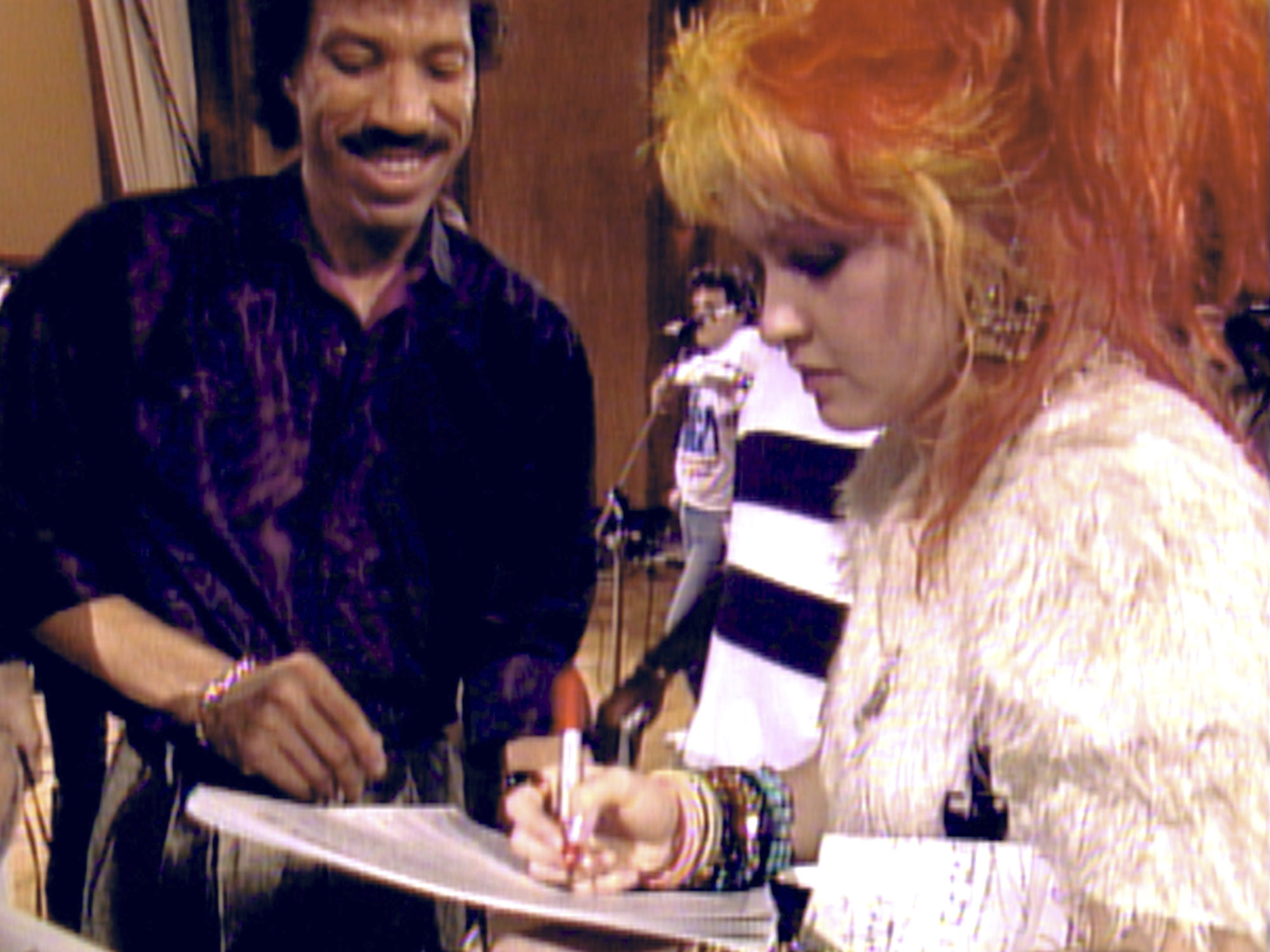
Nottingham isn’t sure such a similar recording session with music superstars could ever happen these days, especially with ever-present social media and armies of assistants.
“It was very ahead of its time in terms of it being the 80s and technology. But I would hope it would serve as an inspiration for other artists to keep trying and do these things for great causes.”

